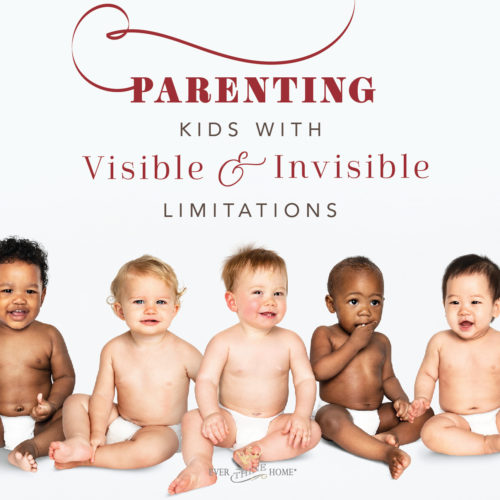
Of our two sons, one was more athletic, while the other was more scholastically inclined. The younger one’s first word was, “ball.” The older one started reading before age five. They could not be more different.
Instead of playing basketball for hours on the court Dennis built for the boys (because that’s what he did in his childhood), Samuel found a tennis racket and began hitting balls against the brick wall underneath the basket. It became clear he’d found his sport.
We enrolled him in lessons and then in competitions. By early seventh grade he was ranked in the state and playing for number one status in his age division. In a tournament to determine new rankings, Samuel almost had his opponent beat, but missed one point and then on the next serve lost the match. He was disappointed, of course, but we hoped this was just the beginning. Parents dream big for their kids!
That day was indeed the beginning. But it was not the start of a dream tennis career.
A couple weeks later Samuel’s coach asked to speak to me when I picked him up after his lessons. He explained that Samuel wasn’t getting to balls he used to return with ease. “Something’s not right,” he said.
Immediately I lined up appointments for our son. The early diagnosis was unclear, so we went to Mayo Clinic, where neurologists confirmed Samuel had Charcot-Marie-Tooth, a slow deterioration of the nerves to the lower legs.
After returning home Samuel wanted to keep playing tennis and I agreed 100 percent. I designed a pair of tennis shoes with elastic support from ankle to toe to help him lift his feet so he could run and not fall as often. But six months later it was clear he would never run again.
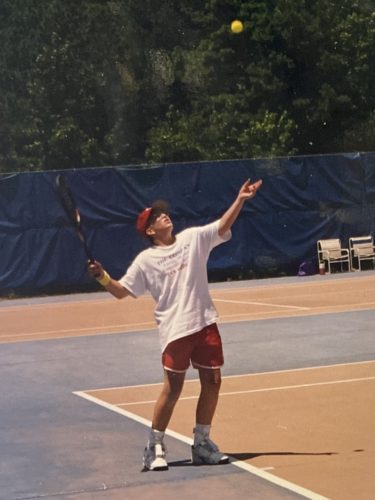
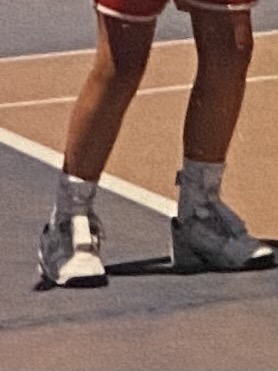
I’ll never forget the grief and heartbreak. Dennis and I went for a walk the day the truth finally became clear to me. Five minutes into the walk I sat on a log, fell forward into a fetal position, and cried uncontrollably, with groans from a place so deep within I never knew it existed.
Learning to adjust
For the next six months or longer Dennis and I mourned. Our athletic son had lost his greatest strength. He never liked school and now it was worse. In his own grief he struggled even more in class. As our most active kid he started getting in trouble.
We knew he was mourning, but what 13-year-old knows how to process catastrophic loss? We didn’t know how to help him either. It’s impossible to prepare for something like this. So, we leaned on God, prayed constantly, asked for wisdom, made mistakes, talked to those wiser and more skilled, and trusted God to use this tragedy for good in ways impossible to see in the moment.
As the months moved slowly forward we wondered how Samuel would handle high school. Would he go to college? Would he ever get married? What kind of career could he have? Would he be confined to a wheelchair one day? And most of all we wondered what God was doing and what He had planned by giving our son a real incurable life-altering physical disability.

All parents have high hopes for their children. We want life to be easy for them. We want a pain-free existence as much as is possible. We desire all these things because our children are extensions of us. “Every child is a piece of his mother’s heart walking around outside her body,” said author Jean Fleming. And it is true. Even today when my children suffer or are in pain I feel it as if it was my own.
When Samuel was diagnosed Dennis and I both longed to give him our legs. Dennis even asked if there was a transplant surgery of some kind. We would have sacrificed happily because we love our son enough to give our lives for him.
Limitations are common to all
We don’t have just one child with a disability. Our oldest daughter is dyslexic. Our adopted daughter, though not diagnosed with a disability still had her own very real obstacles through no fault of her own. Our other three have no official diagnosis but are none-the-less limited by DNA deficiencies and by relation to Adam and Eve.
My brother’s son has autism. Another nephew is on the spectrum. A dear friend’s son at 21 is living with ulcerative colitis which greatly limits his lifestyle as an otherwise healthy young man. My daughter Laura’s best friend has a son with Down syndrome. Another friend’s daughter has three children, all diagnosed with the rare condition PANS.
Even the most intelligent among us may be geniuses or near genius but lack ordinary common sense. Like one of Dennis’s professors at Dallas Theological Seminary who had a photographic memory but forgot that he had driven his car to a speaking engagement in Houston. Afterward, he left the hotel, taxied to the airport and flew home. When he arrived he phoned his wife to come get him and she asked what he did with the car! C.S. Lewis also had a photographic memory but struggled with spelling his whole life. Go figure.
But the whole truth is that all of us are born with multiple limitations. We have no idea how much we lost in terms of intelligence, our five senses, physical and emotional abilities when Adam and Eve “fell.” All of humanity is “disabled” in some way. As I learned from my sister-in-law disabilities are really diff-abilities; different abilities.
The most important point of this entire post is this: None of your children or grandchildren are without disabilities. All of them have limitations, and this is good. Recognizing our own flaws and helping our children recognize theirs is an important step to acknowledging our need for a savior.
The greatest tragedy of all is not being born with a disability but living without knowing one’s brokenness and need for the Savior, Jesus Christ.
A single mom wrote about all that her 16-year-old son was missing since his father had died, summarizing: “Such are the children of the kingdom of God—all are missing arms or limbs, all are cracked vessels. Out of such raw material God is pleased to build His kingdom, the better to show the power is from Him.” Paul taught that we are all jars of clay, formed from dirt. All by God’s good design.
Here are six ways to embrace and give thanks for the disabilities and weaknesses God has woven into your children for their good and His glory.
1. Pray that your children would know they are sinners in need of Jesus. This was one of my frequent prayers for my children. I was especially concerned for my oldest and my youngest who were both people pleasers. They didn’t rebel much or instigate sibling rivalry. I knew they could be deceived into thinking they were good on their own merit. And Satan would work to convince them of that.
Our sin nature is so quick to defend our own perceived goodness and to measure ourselves against others who appear to be inferior than we. That was my own story. My three brothers were always fighting and getting into trouble. To avoid my father’s displeasure and occasional anger I was the good girl and never did anything to rock the boat.
Though I was eager to receive Christ as a college student, it was not because I felt sinful. In my own view I was not really “wicked and depraved” as the Bible declared. It wasn’t until my 40s that I saw the depth of my own depravity and was convinced how desperately I needed Jesus’ sacrifice on the cross for my sins.
“None is righteous, no, not one; no one seeks for God. … no one does good, not even one,” Paul wrote in Romans 3:10-12. Believe it and pray your children believe it too.
2. Give thanks for every limitation and disability you discover and teach your children to do the same. God commands us to “give thanks in all circumstances; for this is the will of God in Christ Jesus for you” (1 Thessalonians 5:18). Embrace God’s design. He knows what He’s doing and He has beautiful plans for your child’s life.
3. Beware of constantly telling your children they can do anything and be anything they want. This may surprise you because everyone today believes this, but it’s not wise or biblical parenting. The truth is your children can’t do or be anything they want. God has given them limitations on purpose to help guide them to His good and perfect plan and design.
An important part of your job as a parent is helping your children learn how to discern God’s directions for their lives. A favorite verse of mine is Ephesians 2:10, which says, “For we are His workmanship, created in Christ Jesus for good works, which God prepared beforehand …”
4. Teach them to look for His design for their lives, not to find their own way. God their Maker wants to use the talents, desires, and yes, the disabilities He has given in ways that He has planned. Teach them to work with God and how He has crafted them. Remind them, “Your hands have made and fashioned me” (Psalm 119:73). And pray they will not be lured by the culture into thinking they know better than God. Sadly, too many children and adults today strive in thousands of ways to be all they imagine, many with tragic results.
5. Teach your children and grandchildren that no one is perfect except Jesus. It’s another trap of our present culture to strive for perfection in our looks, our image, our identity, our jobs, our families, and more. The pressure is killing people. Literally. The sooner we acknowledge we are fallen and will never find perfection on our own, the sooner we will release the pressure and turn to Jesus. “There is salvation in no one else …” Peter declared in Acts 4:12.
6. Remember God delights to show His power and glory. John 9 tells an amazing story for our instruction. Jesus passed by a man born blind and the disciples asked whose fault it was, supposing there was a logical human explanation. But Jesus replied “It was not that this man sinned, or his parents, but that the works of God might be displayed in him” (John 9:3). Jesus then healed this man and all who saw glorified and worshipped Him.
So too in our lives God has plans and purposes that will reveal His miraculous power and care for us that we might glorify and worship Him.
God causes good
Through our own children and from watching others with disabilities, I’ve learned the pains and losses from these “gifts” that we would change or wish away are the very things God wants to use to purify, strengthen, and mold our kids into His image.
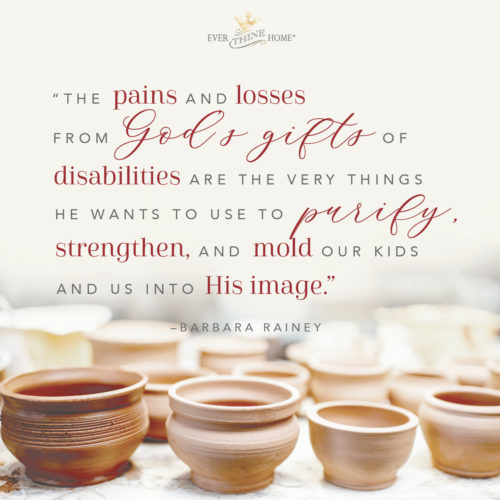
On the Wednesday before Thanksgiving 2015, Samuel and his family came early for some time with Dennis and me before we gathered with extended family the next day. He and his four kids and wife wanted to hike Pinnacle Mountain near our home; at 1,000 feet it’s small by western standards, but it is still a challenging hike, especially near the top. Samuel has surprised doctors over the years with his remaining ability. He wears titanium leg braces, has learned to play golf and is able to walk normal distances. On this day he wanted to climb Pinnacle.
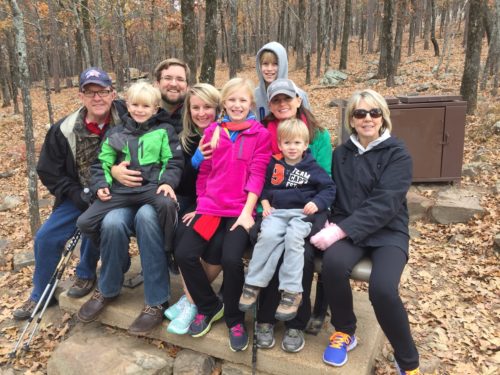
With his well-used walking sticks he kept up on the lower part of the trail without too much difficulty. But as we climbed higher the ascent proved more difficult. I’ll never forget his oldest son, who was 12, choosing to position himself a couple steps behind and below his dad. Peterson was paying attention not to his own enjoyment but to his dad and his difficulty negotiating the trail.
Finally, we arrived at the boulder field, the last section before the summit, and Samuel knew he couldn’t finish. He sat on a rock and his youngest son joined him. He sent the rest of us to the top, enjoying the satisfaction that he’d made it as far as he did. He was grateful and didn’t focus on what he couldn’t do.
Samuel is a godly man, a great husband and father, and by training and occupation an outstanding marriage and family therapist. (I’m biased but I know it’s true. We hear reports.) He is also a speaker with his wife, Stephanie, at Weekend to Remember marriage getaways. There is no question in my mind and heart that God purposed his disability to form a man of great compassion, understanding, and wisdom.
I also believe his divine limitations spared him from temptations or difficulties far worse. We vastly underestimate the protection of God in circumstances that appear to hold us back.
Would a world of only perfect people be better?
In 2005 I read an article I’ve never forgotten by a mom of four; her youngest was born with multiple physical and mental disabilities. Writing with great wisdom, she was reflecting, even then, on the growing trend to terminate pregnancies determined to be Downs or other birth defects.
“What would a society look like if everyone were ‘normal,’ if we never had to make provisions and exceptions for people who are deaf, blind, mute or lame? I didn’t have to look farther than my own family. My children are among the most unselfish people I have ever known. All three have made sacrifices, too many and too big to count, for their disabled sibling. One would think this would have made them bitter and discontented. Amazingly it has done exactly the opposite. They are thankful, giving, and tolerant to difficult and unlovely people.
“Could people have that balancing effect on society as a whole? How would love and compassion develop among people who were only surrounded by the lovely and intelligent?
“I wonder if our advanced technologies successfully eliminate the weak and needy, will future scholars, theologians, politicians, and poets ponder: ‘Why has our society become less loving, so selfish, so intolerant, so uncommitted to anything outside of individual gain? Why are we so full of selfish ambition and vain conceit? Is this ‘perfect’ society a place where any of us would want to live?’”
Sadly I’m afraid we are living in that society today. We no longer believe the truth of the Bible which teaches in Psalm 139:13, “For you formed my inward parts; you knitted me together in my mother’s womb. I praise you for I am fearfully and wonderfully made.”
God doesn’t forget, never sleeps, makes no mistakes. Many assume He doesn’t see or care because He doesn’t show up in the dramatic ways we want, but Acts 17:26-28 reminds us that He is control: “ … and He made … every nation of mankind to live on all the face of the earth, having determined their appointed times and the boundaries of their habitation, that they would seek God … for in Him we live and move and exist …”
Disabilities and limitations are not mistakes. They are gifts to help us see God, know Him as He is and to teach us to be compassionate and gracious to others. And knowing Him is worth the losses of today because one day, He will make “all things new” (Revelation 21:5).
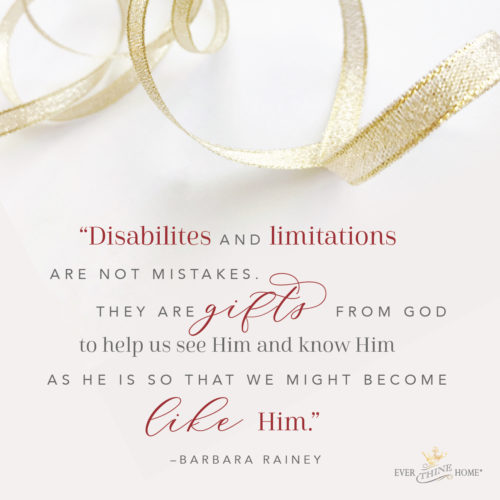
And my son will run and jump and skip and dance and rejoice in His Maker!
And we will rejoice, too!
If you enjoyed this, be sure to read some other blog posts where Barbara wrote about trusting God despite disabilities:

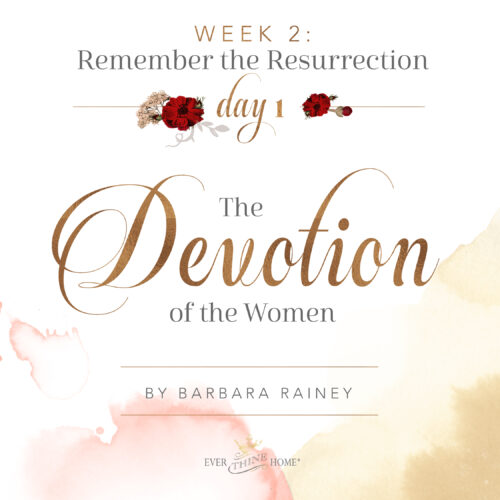


Thanks so much for this beautiful article. I have gone through a similar disability when I was in my teens, seen my parents shattered (yet holding strong in front of me).. but most of all I have seen their strength in those tearful prayers and trust in the Lord that He is in control. Today, I have a child of my own and as me and my husband sometimes wonder (and it scares us) how the real world would look like for her, I take courage in the Lord who is all-knowing.. similar to how my parents trusted in the Lord for my life. Your son’s testimony and these words are a timely provision for us. Thanks for writing:) God bless.
This is given me a great reminder on the Truths of God’s word & how intentional parenting should be perceived.
Yes and AMEN! Thank you for sharing this much-needed message. As a Mom of a child with severe disabilities, I resounded with every word. Well said. Your son’s testimony is powerful! I will share this with my family and to the two “typical” brothers of our dear boy with a body that doesn’t work well.
Thank you for this timely post. It helped me adjust my perspective on one of my children and reminded me of God’s plans, not mine.
Thank you for the timeliness of your message as l face the reality of aging for my husband and me. This is not what I expected life to be like in our golden years. God bless you, Barbara
Sweet happy tears reading this. Thank you for this post, it was good for my heart.
I so loved reading this today, and it helped me understand my own and my children’s disabilities. Thank you, my friend. Keep writing!
Thanks so much for these words!! I have a son with intellectual disabilities. I have been feeling really sad lately because of his future life and these disabilities. It is so amazing how God sent these precious words you wrote today! God is good all the time!!!